Will Dowell is the Executive Director of Behind Every Door, which utilizes community centers to run on-site programming and create access to resources in low-income apartment communities. Based in Dallas, Texas, the organization’s headquarters are in a unique revitalized neighborhood, the Wilson Historic District, where all their neighbors are other nonprofits supported by the Meadows Foundation. Like their neighbors, Behind Every Door is offered a 10-year lease with no capital costs, as part of the generosity from the Meadows Foundation. This also creates great symmetry with other nonprofits in Dallas. They can leverage each other’s strength.
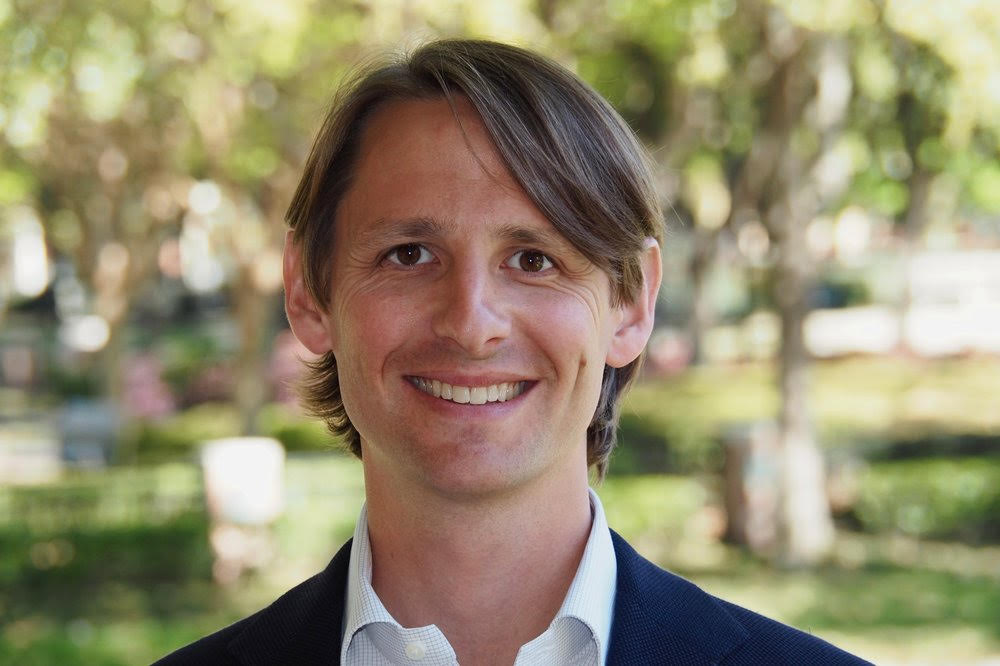
Will Dowell joined us for an interview for Episode 67 of the Agents of Innovation podcast, that took place at his headquarters in Dallas.
Before coming to lead Behind Every Door, Will started his career in two different entrepreneurial startup ventures. “It’s just a big part of who I am, I think, seeking to bring outside the box, innovative solutions is just in me.”
Will says that Behind Every Door wants “to change the narrative and the experience of poverty.” They believe that there is both a physical nature to poverty, what we might call “asset poverty” and a mental nature to poverty, what we might call “the scarcity mentality.”
Asset poverty is the lack of ownership, the living day to day trying to find food and shelter and other materials things needed to survive. But the scarcity mentality is something that can affect anyone, no matter their means. “It’s a belief that there’s not enough, there’s not going to be enough,” said Dowell. “That can rear itself in two ways. One would be, you know, greed: let me keep more for myself because I’m afraid that that I may run out. And the other one is: I’m not worthy of that or I don’t have access to that. And so I just kind of isolate myself or sometimes I’m forced into isolation and don’t have access to those resources.”
“I don’t think scarcity mentality is isolated to one group people,” said Dowell. “I think anybody can have it.”
To achieve their mission, Behind Every Door runs community centers in low-income neighborhoods. “Through those community centers, we do two things really well,” said Dowell. “We operate the community center and so we want to build deep relationships in the neighborhood with people who live there and really understand the stories. That’s where our name comes from. There’s a story behind every door. You want to learn the stories and until you learn, you can’t help. So, we learn the stories and then we leverage that building and the relationships to bring resources in.
“And the other thing that we do really well is we operate a program for kids and families. It’s an afterschool program that runs year-round, about 46 weeks out of the year and we focus on four areas: social / emotional health, literacy, spiritual health, and what we call discovery or you could call it enrichment activities.”
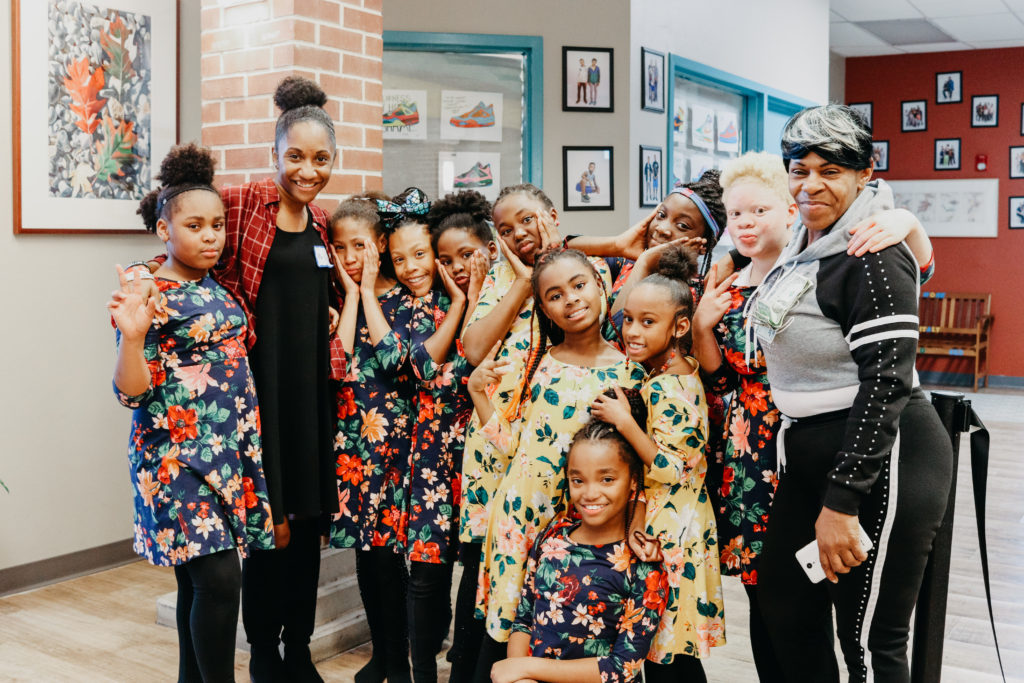
Behind Every Door has operated five community centers and are currently operating two that are owned by the Dallas Housing Authority that have community centers inside their apartment building. They are in the process of purchasing one of their own, which will be the third community center they are running simultaneously, with plans to keep adding more over the next three years.
“We’re really excited about this community center that we’re, we’re going to purchase and renovate. We think it’s a model that can be scaled up. We think there’s been a huge impact in the last 10 years and now we think this is a way to grow it going forward,” said Dowell.
“Who we have on our team are absolutely amazing, overqualified staff members who believe this is work that either God has called them to do or just part of their own inner drive. And they’re giving up other opportunities to be here. We’ve got a lot of master’s degrees, people who could be doing something else, but they are choosing to be here,” said Dowell. “They’re very innovative, very entrepreneurial in spirit. The way that we lead because of the culture that we have is that we want to build big people and not build a big organization.”
“Faith is absolutely the why. It’s what drives us. It would be a common thread for this organization. We believe that God has created everybody with unlimited freedom and that he wants us to experience that freedom in the fullness that he intended for it to be. And that, through Jesus and through the Holy spirit, we now have access to be able to manage that freedom well,” said Dowell.
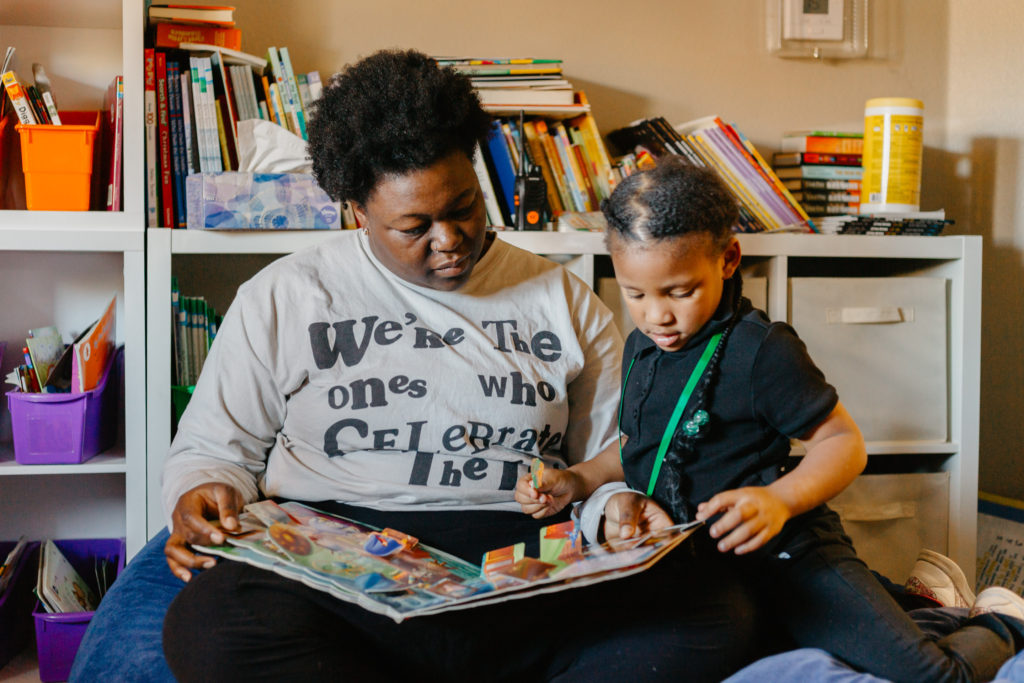
A very typical story of someone using a community center run by Behind Every Door, “would be a single mother who is working two jobs, trying to keep her kids fed and into a good education and trying to get somewhere, who was born to either a mother and father or a single mother who was also in asset poverty who was born to somebody who was in poverty,” said Dowell. “Typically, you’re talking about two or three generations deep of poverty.”
“And so even the way that we’ve designed our programs, it’s designed where we say to anybody who would come through our doors: Hey, you’re a powerful person and you have freedom so you can make whatever choices you want,” said Dowell. “We expect you to use your freedom and we want to do everything we can within what we call a choice-based environment, supportive of freedom, to train you to use it well and then let you go. So, I think that idea of freedom is direct for us. It’s directly attached to how God created us to be. And it definitely drives everybody here in what we do.”
“We want to enter in as peers. People are not a problem to be solved. We just don’t believe that,” said Dowell. “We believe there’s a story behind every door. So, we quite literally are knocking on doors and we think it’s a way to honor somebody. I want to come to your home and you don’t have to let me in your home and you’re certainly not going to let me in your home before I earn your trust. Just like I wouldn’t let someone in my home without earning my trust. And so we honor that and we work to build that trust.”
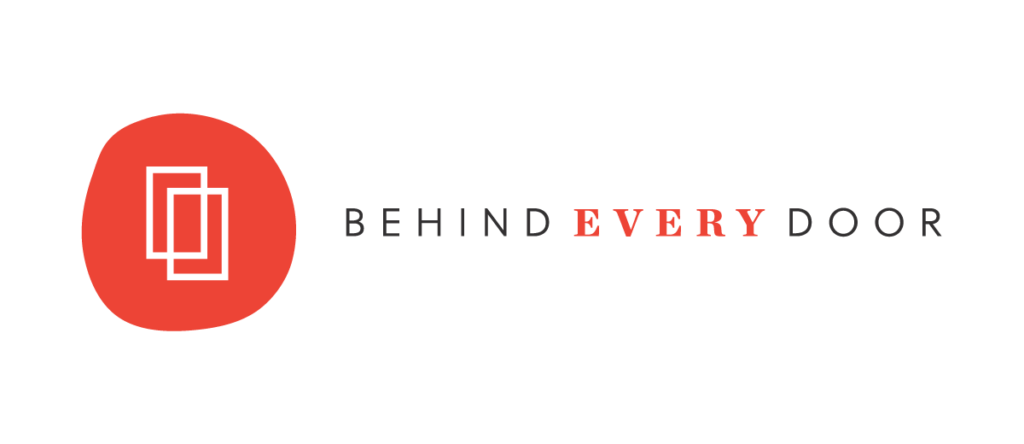
“Ultimately what we believe is that when somebody begins to pull themselves out of poverty, they’re the ones who should be celebrated. Not us. We didn’t do anything. All we did was restore things that should have been there to begin with,” said Dowell. “We’re here to restore and walk alongside and really let people be who they were made to be.”Reflecting on his experience leading Behind Every Door, Dowell says, “What I’ve learned more than anything else is that when we sit with other people and have dialogue and listen, truly listen, not just to hear, but to understand what’s being spoken, I have seen more common ground. I’ve seen more friendship It’s amazing what happens. I think that’s my biggest thing is just to see more of that. That we would go knock on somebody’s door, figuratively or literally, and get to know that person, seek to understand where we disagree, seek to understand a little more. And just the beauty that it brings when connections are made like that.”To listen to the full interview with Will Dowell, tune into Episode 67 of the Agents of Innovation podcast, which can be heard on Apple podcasts, Stitcher, Google podcasts, SoundCloud, or wherever you listen to podcasts. You can also follow the podcast on Facebook, Instagram, or Twitter. We welcome your comments below and encourage you to write a review on Apple podcasts!


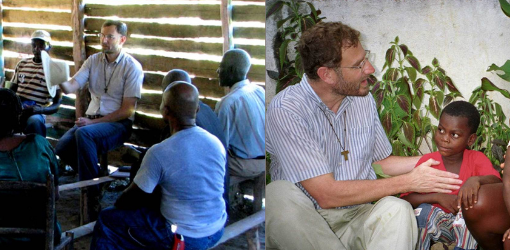
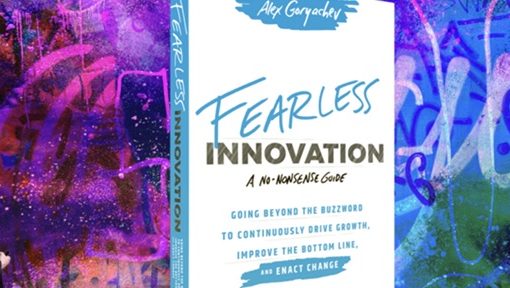
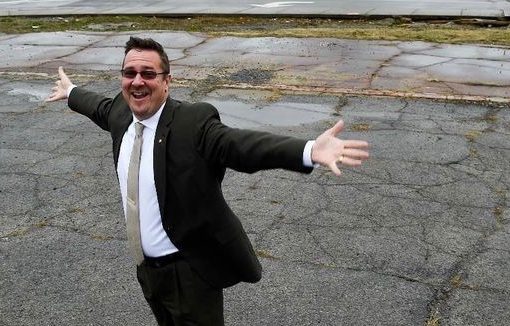
One thought on “Will Dowell Goes Behind Every Door”
The frame of “Behind Every Door” reminds me so much of the those very moving Chick Fil A training videos where individuals in the restaurant are fitted with captions that capture situations in their lives. Circumstances that we’d never know about were we not to empathize, inquire, and be curious about who they are beneath surfaces and assumptions. Here’s to reaching out and making the connections that count.